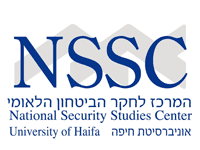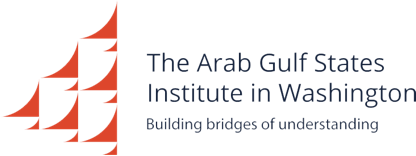 |
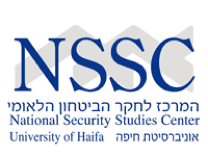 |
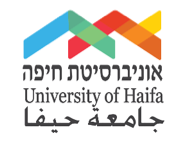 |
The Arab Gulf States Institute in Washington (AGSIW) annual report for 2021 mentions the great cooperation with the National Security Studies Center (NSSC) from Haifa University. Both of these institutes managed to make a special cooperation, together with some Emirati experts, in the field of International Relationship. This cooperation included a set of webinars with special experts on Middle East affairs from all around the world and an establishment of a new shared platform. Here is a quote from the annual report: “We also initiated new collaborations, including a yearlong series of workshops with the University of Haifa exploring the impact of the Abraham Accords, ably coordinated by our Chief Program and Development Officer Raymond Karam and his team”.
Click here to see AGSIW’s annual report:
The Theme and Goals
In a region of changing stability, the Middle East countries have experienced a decade of abundant intervening forces. Global powers and aspirants for regional hegemony are shaping and re-shaping axes, networks and influences. The goal of this project is to map these changing networks in the post-Arab Spring Middle East, and to analyze the motives and influence of the involved powers. The normalization agreements between the United Arab Emirates, Bahrain and Israel are a regional game-changer that raises many questions on their ramifications. One of the main points for discussion is the impact of the Abraham Accords on the wider region. We seek to propose a novel point of view on the foreign policy interests of various powerful actors engaged in the Middle East and to discuss their motivations that in the aftermath of the agreements. These actors include the US, China, Russia, Turkey, Iran, Israel, Saudi Arabia, and the UAE.
The Workshop’s Plan
The workshop which will be held between 2021 and 2022 and will include 6 sessions, one every 2 months. Each session will be dedicated to a main topic.
The workshop sessions will be held in an online format via Zoom under Chatham House Rule. The workshop is designed as a closed virtual roundtable with presentations and open discussion between the invited discussants.
The workshop will culminate in an edited volume and an international conference.
Please click here in order to see the video recording from the 6th IRIME panel:
Please enter this link in order to see the last session’s summaries: https://agsiw.org/programs/international-and-regional-involvement-in-the-middle-east/
A list of articles about global and regional involvement in middle east affairs
A list of reviews about global and regional involvement in middle east affairs
Project’s Leaders and Important links
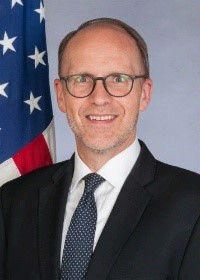
Ambassador Douglas A. Silliman - This email address is being protected from spambots. You need JavaScript enabled to view it.
Amb. Douglas Silliman is president of the Arab Gulf States Institute in Washington. He previously served as U.S. ambassador to Iraq from 2016-19 and U.S. ambassador to Kuwait from 2014-16. From 2013-14, he served as a senior advisor in the Bureau of Near Eastern Affairs in the U.S. Department of State, working on Iraq issues and the U.S.-Africa Leaders Summit. Silliman was deputy chief of mission at the U.S. Embassy in Iraq from 2012-13, minister counselor for political affairs in Baghdad from 2011-12, and deputy chief of mission in Ankara, Turkey from 2008-11. He joined the Department of State in 1984.
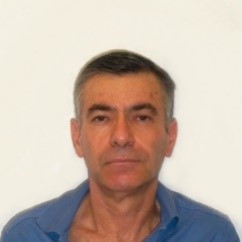
Prof. Benny Miller - This email address is being protected from spambots. You need JavaScript enabled to view it.
https://sites.google.com/hevra.haifa.ac.il/bmiller/home
Prof. Benjamin Miller is Professor of International Relations at the School of Political Sciences, and the Director of the National Security Center, The University of Haifa. Miller is the recipient of the Provost Prize for a Distinguished Senior Researcher for 2020. Miller received a Ph. D. from the University of California at Berkeley and has held Research Fellowships at Harvard University, MIT, Princeton University (Center for International Studies), McGill University and at the Princeton Institute for International and Regional Studies (PIIRS). He has taught at the Hebrew University of Jerusalem, Duke University, the University of Colorado, Boulder, Princeton University and Dartmouth College. He also served for many years as the President of the Israeli Association for International Studies (IAIS). Miller’s most recent book focuses on explaining changes in US grand strategy, entitled Grand Strategy from Truman to Trump.
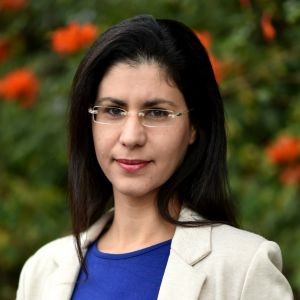
Dr. Moran Zaga - This email address is being protected from spambots. You need JavaScript enabled to view it.
Dr. Moran Zaga is a researcher at the University of Haifa and a policy fellow at Mitvim - The Israeli Institute for Regional Foreign Policies. Moran's main research focus is on borders in the Middle East. Her first study was the United Arab Emirates, focusing on the evolution of its tribal boundaries to modern borders. Moran is also involved in policy analysis and discussions on contemporary geopolitics of the Arab Gulf. Moran was recently appointed to lead the newly-founded unit of research collaborations between the University of Haifa and Gulf research institutions. She is also a lecturer, a commentator in media, and an advisor to Israeli governmental institutions.
Project’s Staff:
Raymond Karam - This email address is being protected from spambots. You need JavaScript enabled to view it.
Bouchra Lawrence - This email address is being protected from spambots. You need JavaScript enabled to view it.
Rakefet-Dana Diamond - This email address is being protected from spambots. You need JavaScript enabled to view it.
Contact Us:
